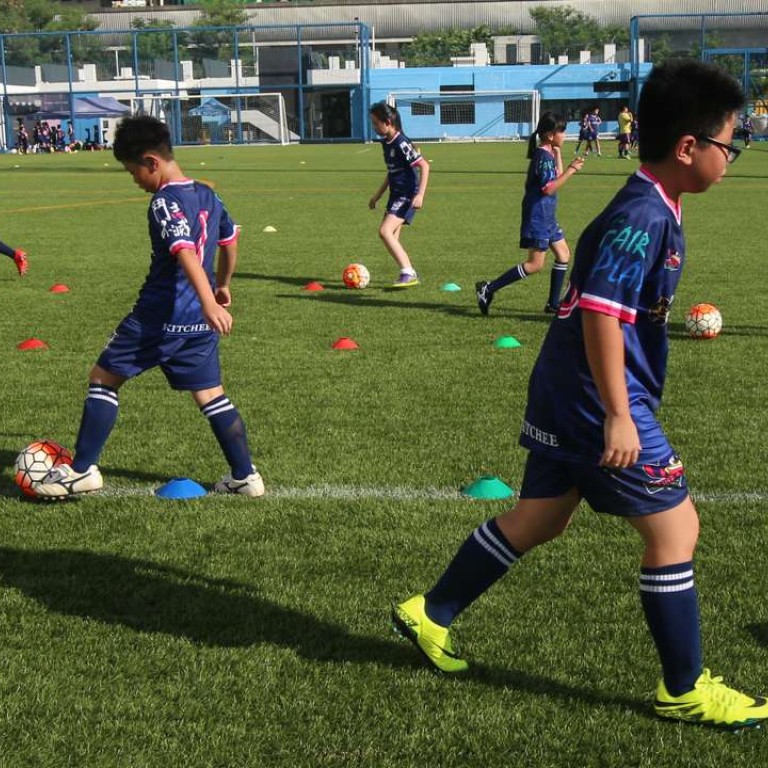
Kitchee land fiasco highlights lack of long-term planning for sports facilities in Hong Kong
Ian Brownlee says zoning loopholes are among factors to blame and calls for public support to keep the site as open space, or hundreds of other sports and community service providers could face a similar fate
A year after it opened, Kitchee Sports Club’s HK$84 million training centre in Sha Tin is facing closure because the government wants to take back the land. The saga shows up the fragility of the provision of sports and community support services by sports bodies, schools and NGOs.
The site was leased to Kitchee on a five-year agreement, and there are hundreds of organisations in the city providing sport and other community services that hold such short-term tenancies. All are at risk of losing their premises at short notice. The problem stems from a combination of factors.
The Kitchee site has long been zoned for use as open space. In Hong Kong, the development and management of public sports facilities and open space is the responsibility of the Leisure and Cultural Services Department. But it has limited funds for recurrent expenditure, and so cannot take on the management of many new projects. Many sites zoned for open space lie vacant or are put to use as, say, temporary car parks.
Fears realised as Kitchee soccer training centre in Sha Tin makes way for housing development
Amid increasing demand for sports facilities, some national sports associations have taken the positive step of applying for unused land to develop their own amenities.
This is where it gets really crazy. Because the leisure department is supposed to permanently develop the park area in Sha Tin, but probably won’t, there is no process for the site to be given to a national sports association or an organisation like Kitchee other than on a short-term tenancy. But who would invest millions of dollars in building a facility for just five years?
The decision to take back the Kitchee land for housing is not in the best interests of the community
There should be investment by the community in sports and community facilities to supplement government provision. But this seldom takes place, as there is no guarantee that the site will be available long enough to get reasonable use out of it.
In the past, the general understanding among NGOs and sports bodies holding such leases was that the government would usually not take back sites that were satisfactorily meeting objectives, especially if they complied with town planning zoning. Many of these sites have been occupied by NGOs for more than 20 years on this basis.
Unfortunately, the Kitchee case shows that this understanding could easily be thrown out of the window.
The search for housing land goes like this: if the site is on a tenancy, then it is not a “permanent use” arrangement; if the leisure department does not have a project planned for the site, it is obviously not required for open space or sports use; on this basis, the tenancy can be cancelled and the site used for housing.

This was my decision: Hong Kong’s chief executive takes responsibility for scaling back housing project
The decision to take back the Kitchee land for housing is not in the best interests of the community.
Many commentators have pointed out that there is no housing crisis, but there is a need for a continuous supply of housing. When there are other options which should be pursued, such as public housing at the Wang Chau site, then these should be taken instead.
Government deserves red card for Kitchee land grab
Chief Executive Leung Chun-ying has urged people to be more considerate in tackling housing problems and to seize chances to rezone and develop land. He is wrong to expect them to give up their quality of life and environment when it cannot be adequately justified.
This case is really important for the sensible development of sports and community services
The Kitchee site is zoned for open space and the Town Planning Board must decide that this can be changed before the site is used for housing. Before any rezoning, the board must consider whether the recreational planning intention should be retained or not, and the public, including sports bodies, will have a right to object and take part in a public hearing. This case is really important for the sensible development of sports and community services. Kitchee should remain in the open space zone. Public support is required.
The fundamental problem, however, is the lack of a more permanent form of land tenure of, say, 20 years. Sports and community services cannot be properly planned and developed by NGOs if there is always the risk that the land will be quickly taken by the government. The Leisure and Cultural Services Department cannot meet the needs for sport development, so there must be a way to make best use of the expertise and commitment of other providers such as Kitchee.
Ian Brownlee is managing director of Masterplan Limited, a town planning consultancy, and has assisted many sports and other NGOs in obtaining and protecting sites for community services

